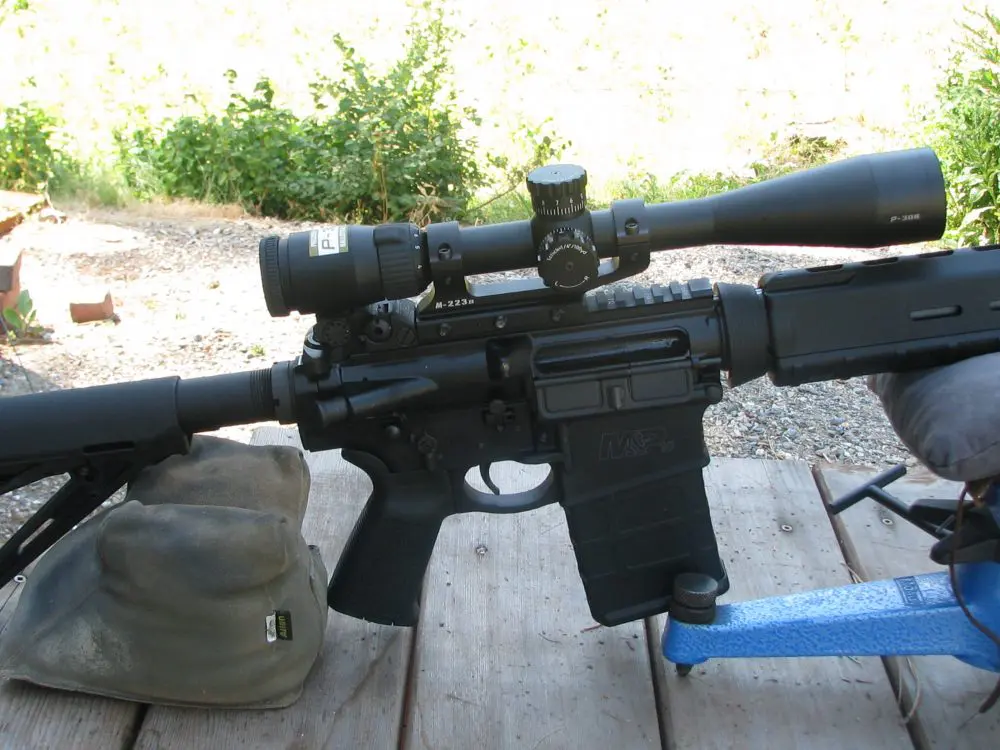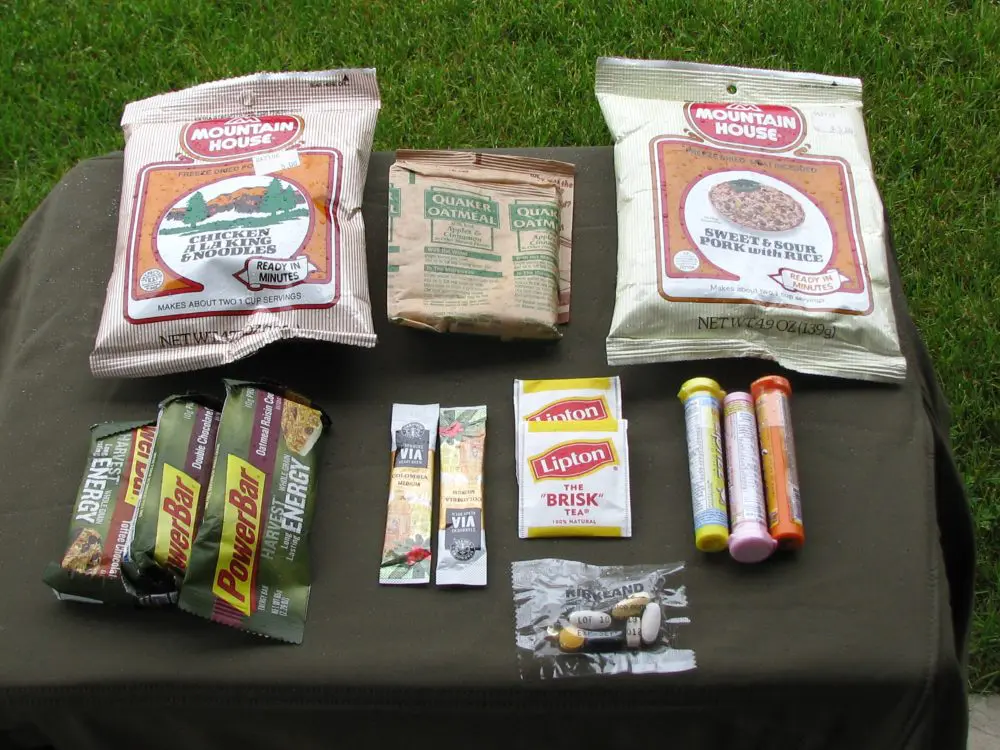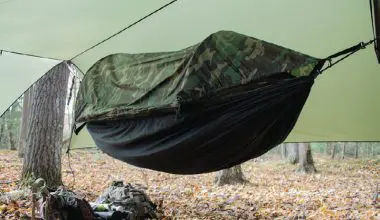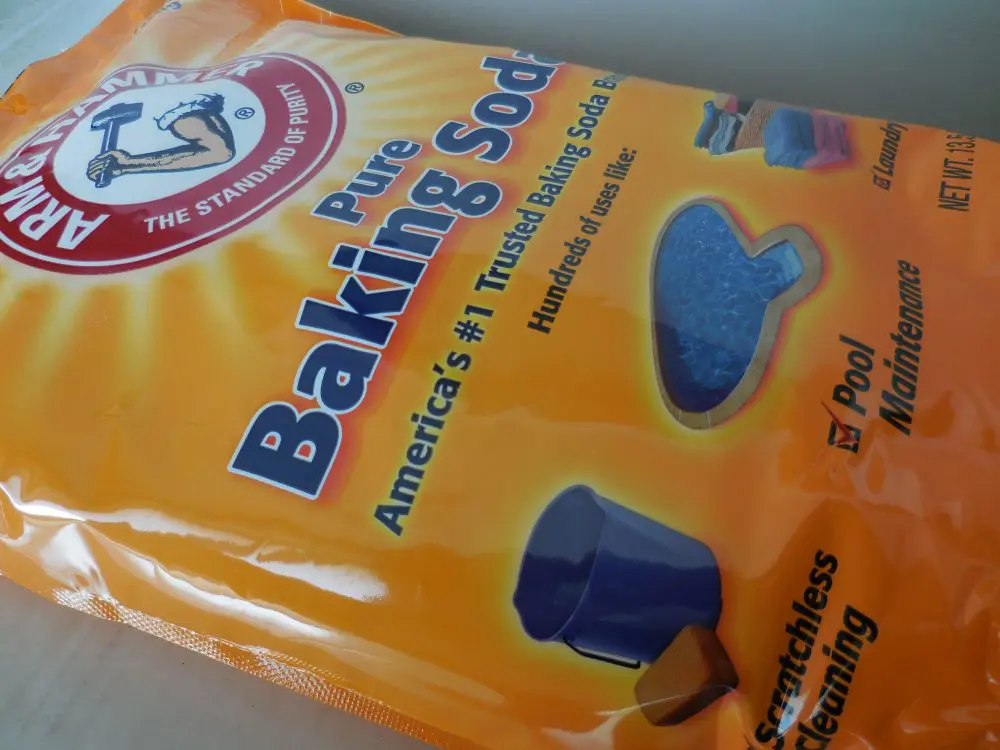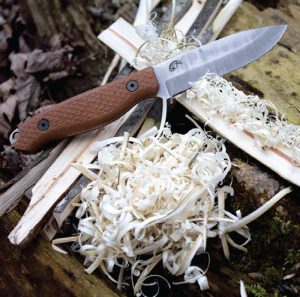
Having spent long periods of time stuck under my shelter during torrential rain, I can attest to how much of a damper it can put on a backpacking trip. Being stuck in your shelter for extended periods of time takes its toll: boredom sets in, the risk of mild depression looms, your mind gets restless, and you get a little anxious for anything to occupy your time.
If time flies when you’re having fun, then the opposite also applies. But in the field you don’t have the creature comforts of home to occupy yourself. You only have what little you carried in with you and the materials around you. But that really is enough.
As the old adage says, if you have space, you will fill it. So while being careful not to overfill your pack, you can take some items from home in the event of being hunkered down, or just for around the campfire in the evening.
Table of Contents
WATERPROOF PLAYING CARDS
Waterproof playing cards take up very little space in your pack and provide a great way to kill time, playing solitaire if alone or other card games if you are traveling with someone. A few companies make waterproof playing cards. You can find them via a quick online search.
Plastic cards are slightly heavier than standard playing cards, but have earned their small footprint in my pack on countless occasions.
BOOKS OR MAGAZINES
Reading is a great way to pass the time during the doldrums and gain some knowledge while you’re at it, and can be done with little space taken up in your pack. This is the perfect time to read something topical to your current excursion, such as Woodcraft and Camping by George Washington Sears or The Book of Camp-Lore and Woodcraft by Dan Beard.
If you don’t mind taking some technology into the field, you can bring a small digital reader like the Kindle Fire and have multiple books and magazines with you. Inexpensive portable chargers can keep it charged up.
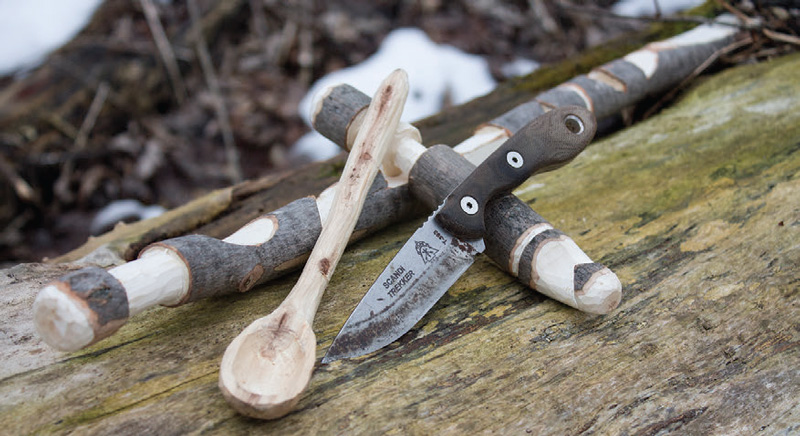
KEEP A LOG
One great way to occupy your mind is to put it to work. Carrying a small notebook and pen will give you an opportunity to keep a log of your trip and the different things you encountered. You can make it as simple or as detailed as you like.
CAMP PREP
Work is never done when in the wilderness— there is always something to do to keep camp running smoothly. Assuming that you had stockpiled some good firewood under your shelter to keep dry during the coming deluge, a lot of prep work can be done under your shelter.
FIRE PREP
Creating feather sticks and shaving wood to make tinder bundles is not only a great way to have the fixins for a fire, but also a great skill for practicing knife work. Since kindling is a necessity in fire building, this is also a good time to create piles of kindling in various diameters so you can grow your fire rapidly.
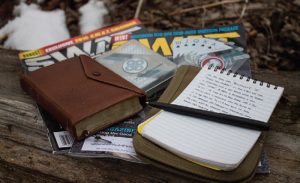
Finally, if the area you’re in has already been having an issue with rain or other moisture, you may find that a lot of the wood you have collected is wet. This is a good opportunity to either shave the wet wood down to dry, or split it to expose the dry wood for use in your fire building.
SHELTER REFINEMENTS
This is the perfect opportunity to refine your shelter, making it a little homier or keeping it in good order from any transformation it sustains from wind and rain. You could adjust a ridgeline under your tarp, allowing you to hang useful camp items such as a candleholder.
You might also consider creating some form of seat back by splitting a log into planks and weaving them together with paracord, leaving the two end pieces longer than the middle pieces so you can drive them into the ground, giving you a comfortable place to sit while you wait out the storm.
BUSHCRAFTING
Bushcrafting is an art that goes back as far as man and encompasses skills that everyone should know if they are going to forge the wilderness. Bushcrafting helps you hone your skills in the wild and gives you the ability to lighten your load when backpacking, because you make most of the items you need right in the field.
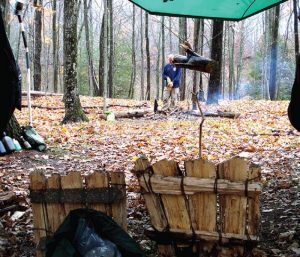
Try Sticks
A try stick is a stick used to practice carving different shapes and notches in. They are a great way to practice your knife skills while simultaneously helping you practice different notches and other various woodcarvings. Made popular by Mors Kochanski, try sticks help pass the time and improve your skills.
Utensil Carving
Although you probably brought utensils with you, carving a spoon is another great time killer and skill enhancer. Due to the intricacies of carving a rounded, hollowed-out object, spoon carving will greatly enhance your knife skills. Far simpler are other cooking utilities and utensils, such as a spit, pot hook, pot hanger, tongs, cooking grate, and fire tripod.
A knife, some rope, the woods around you, and time are all you need to construct necessary items and save yourself a lot of pack space.
PRACTICE YOUR SKILLS
Many skills are associated with bushcrafting and survival and, when you have nothing but time and are confined in a small area, this is the perfect opportunity to practice some of the skills you want to keep fresh.
Some of the top skills that can be done under a tarp (in addition to the knife skills listed above) and require practice to become proficient at are fire starting, trap building and knot tying. All are essential survival skills and can really help pass the time.
CONCLUSION
Going out into the field only to get socked in by rain or other inclement weather can put a damper on any situation. But it is important that you avoid the temptation to just lie down and wait it out. Spending an entire day napping or lying around wishing it would stop raining will only make you lethargic and depressed, which will make it harder to get going again once the rain lets up—plus it really makes time seem to stand still.
Taking breaks or even a short nap is not a bad thing—just limit it. Keep your mind and body active to help pass the time faster and be ready to get moving when the rain stops.
Keep it real and stay safe.
